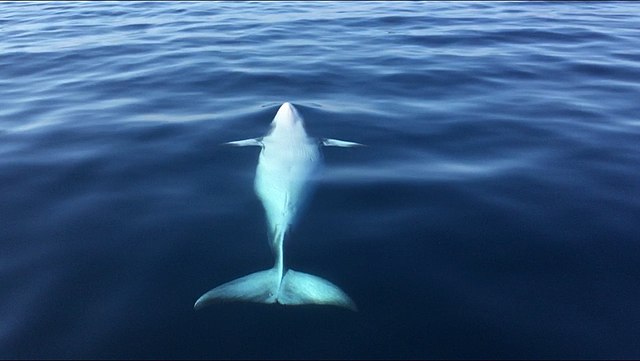A dead minke whale with a broken jaw washed up on the beach of the Belgian town of Bredene on Friday, marking the second beaching by a whale of the same species since last year.
The 3.89-metre-long cetacean was discovered with a broken jaw and was found to be very thin, despite its size suggesting it was a young whale.
The whale's carcass was recovered by Belgium's Natural Sciences Institute who will hand it over to the universities of Liège and Ghent for an autopsy.
Jan Haelters, a representative of the institute, said that it was possible that the whale died because he could no longer feed due to his jaw, but said that only the autopsy could reveal the cause of death.
"We will investigate the cause of death but also look at the contents of its stomach. It will likely be empty because the animal is very thin," he told 7sur7.
"The stomach of the last [beached] mink whale was completely full of plastic," he added, referring to another minke whale found dead on a Belgian beach in 2013.
Minke whales, members of the rorqual family along with the humpback whale and the blue whale, inhabit the North Sea but are a rare sighting in the sea's south.
But research has increasingly found that the marine mammals have increasingly been moving south for reasons which remain a mystery to scientists.
"They are much more commonly [seen in the south] than in the past," Francis Kerckhof, a marine biologist with Institute told Het Nieuwsblad. "There is no exact explanation for the shift."
Over the past 20 years, a total of six minke whales have been found stranded on Belgian beaches, half of which were found alive in 2013, 1017 and last year.
Two whale carcasses were found in 2004, one of which was found to be a bycatch and another in 2013, which died from swallowing a hotch-potch of plastics.
Gabriela Galindo
The Brussels Times

